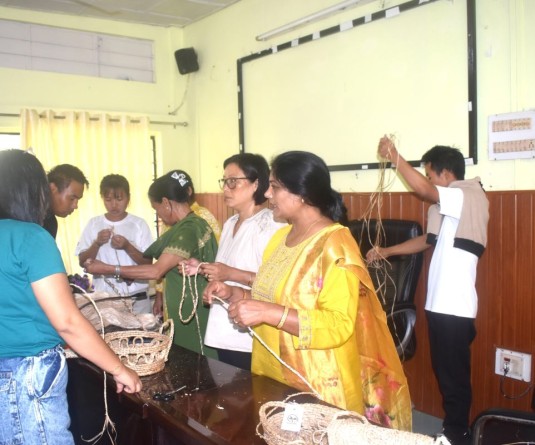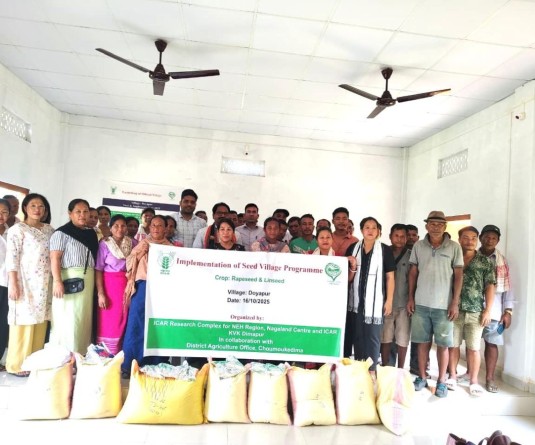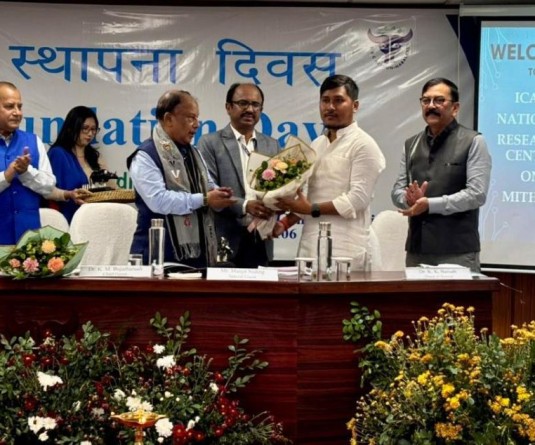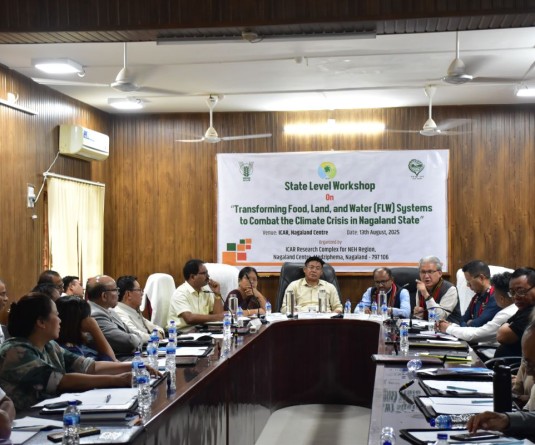
Dr T Esther Longkumer
Livestock waste management through composting is a sustainable practice to reduce environmental pollution and promote eco-friendly agriculture. Composting is a natural process transforms manure and other organic materials into a nutrient-rich soil amendment, reducing the need for chemical fertilizers and promoting beneficial microorganisms.
Benefits of Composting Livestock Waste:
• Soil Enrichment: Compost improves soil fertility, structure, and water-holding capacity, leading to healthier plants and increased crop yields.
• Waste Reduction: Composting diverts organic waste from landfills, reducing greenhouse gas emissions and preventing environmental contamination.
• Resource Recycling: Composting enables the recycling of resources, reduces waste, and provides a natural alternative to synthetic fertilizers, thereby promoting sustainable agriculture and a circular economy
• Environmental Protection: Composting plays an important role in environmental protection by mitigating water pollution, as it prevents the runoff of excess nutrients and the leaching of pollutants into waterways.
• Disease Control: Composting acts as a valuable means for disease control, as the heat produced during the process eliminates pathogens and weed seeds, minimizing the risk of disease outbreaks and weed proliferation.
• Cost Effective: Composting is a cost-effective method of waste management, especially for small and medium-sized farms.
Composting Methods:
• Aerobic Composting: This method involves piling organic materials and allowing them to decompose in a well-aerated environment, where microorganisms break down the materials through oxidation.
• Vermicomposting: Vermicomposting leverages the natural abilities of earthworms to break down organic matter, resulting in a high-quality vermicompost that promotes healthy plant development and soil ecosystems.
• Indore Method: Indore Method is a holistic approach to composting, integrating plant residues, animal dung and urine, earth, wood ash, and water in a pit, which is then sealed with mud to facilitate aerobic decomposition and nutrient cycling
Innovative Approaches
• Insect-based composting: Black soldier fly larvae are being used to convert organic waste into nutrient-rich compost, reducing waste disposal costs and promoting sustainable agriculture.
• Co-composting with agricultural waste: Research explores the benefits of co-composting livestock waste with agricultural waste, such as watermelon waste, to enhance compost quality and reduce waste disposal costs.
Challenges and Opportunities:
• Contamination: Improperly managed composting can lead to the accumulation of contaminants, such as heavy metals, pesticides, and pathogens.
• Odor: Uncontrolled composting can produce unpleasant odors, which can be mitigated through proper management techniques, such as aeration and turning.
• Nutrient Leaching: Excessive moisture or improper aeration can lead to nutrient leaching, reducing the quality of the compost.
• Pathogen Survival: While composting can kill many pathogens, some may survive the process, requiring careful handling and storage of the finished compost.
• Composting livestock waste is a sustainable and multifaceted solution that reduces environmental pollution, promotes eco-friendly agriculture, and generates economic benefits, making it an attractive option for farmers seeking to adopt more sustainable and resilient agricultural practices.
Dr T Esther Longkumer is Chief Technical Officer-Soil Science ICAR-KVK Phek (ICAR-NRC on Mithun, Medziphema) Phek.






